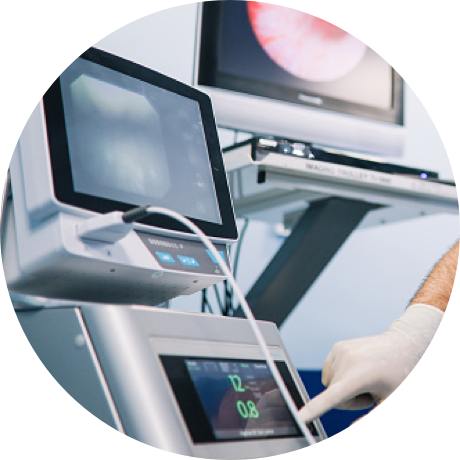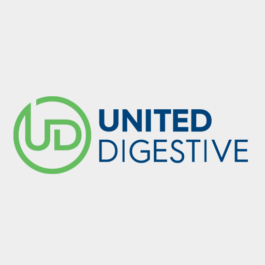Your trusted partner practices are here to make your colonoscopy experience as smooth as possible. With our Direct Access Colonoscopy program, you can bypass the pre procedure office visit, resulting in saving time and money for you. Simply complete our quick online questionnaire and let our Patient Service Team help you explore your options and schedule your procedure at a partner practice near you.
How It Works
1. Answer Our Quick Online Questionnaire
Complete a few brief questions about your health history. Our streamlined form is designed to quickly determine if you may be eligible to skip the standard pre procedure paperwork.
2. Get Personal Support
After you submit your answers, one of our dedicated Patient Service Team members will reach out. They’ll review your responses, discuss your care options, and assist you in choosing the most convenient partner practice.
3. Schedule at Your Nearest Partner Practice
We’ll help connect you with a trusted local practice, ensuring you receive quality care from a team you already know and trust.
Why Choose Direct Access Colonoscopy?
Effortless Convenience: Avoid repetitive paperwork and office visits, allowing you to get straight to scheduling your colonoscopy.
Personalized Assistance: Our Patient Service Team is ready to answer your questions and support you through every step of the process.
Trusted Care Close to Home: Receive your procedure at one of our well recognized partner practices that you already know and trust.
Our Practice Network: From Metro Atlanta, across to Coastal Georgia, down to Southwest Florida, we have a nearby practice for you.
Are You Ready for your Screening Colonoscopy?
Take the first step toward a hassle-free colonoscopy experience. Complete our online questionnaire now, and our Patient Service Team will be in touch to guide you to the nearest trusted partner practice.
While there is evidence that more people are getting screened than in previous years, one in three people who should be tested have never been screened.
About Colonoscopies
A colonoscopy is considered the single best method for detecting and preventing colon cancer.
Performed under light sedation, a colonoscopy is a procedure that allows a gastroenterologist to look at the inner lining of your large intestine – or colon. The physician uses a thin, flexible, lighted instrument called a colonoscope to visually inspect your colon for inflamed tissue, ulcers, bleeding, and any abnormal growths (polyps). Not all polyps found during a screening are precancerous or cancerous, but over time, they can grow and become cancerous. So, when polyps are found, they are removed at the same time to prevent cancer from forming.

FAQs
Because the risk of getting the disease increases with age, screening colonoscopies are recommended for every adult beginning at age 45.* For those with a family history of the disease, or other risk factors, screening could start even earlier. For example, if a close family member – like a mother or father – was diagnosed with colon cancer at age 50, the children of those parents should get screened 10 years prior to the age of the parent’s diagnosis – at age 40.
*American Cancer Society
Your colon must be completely empty for the colonoscopy to be thorough. You will be on a clear liquid diet for at least one day before the procedure. Then you will be asked to drink a liquid solution – or ‘prep’ – that will flush the colon. This is a critical step in the process since the doctor must be able to see the entire colon during the procedure. A list of detailed instructions will be provided before your procedure.
The entire process – from check-in to check-out – typically takes about two hours. The colonoscopy itself usually takes about 25 to 30 minutes. You should plan to rest for several hours after the procedure.
On the day of your procedure, our nursing staff and an anesthesia provider will review your medical history. Once the anesthesia provider deems that you are a suitable candidate for deep sedation, you will be taken to the procedure room on a stretcher. Your anesthesia provider will then place monitors on you that allow us to monitor your vital signs throughout the procedure.
The vast majority of patients will receive Propofol, a safe, short-acting IV (intravenous) anesthetic that is used to render you temporarily unconscious as you continue to breathe on your own. In the rare instance that medical issues prevent you from having sedation with Propofol, you will receive conscious sedation medications that allow you to relax but will not render you unconscious. Our anesthesia professionals, a team of anesthesiologists and anesthetists, work hard to promote an environment of safety.
Once asleep, your gastroenterologist will insert the colonoscope into the rectum and skillfully navigate around your colon. There are several tiny instruments in the long, flexible scope that help the physician during the procedure: one to inflate your colon for improved visibility; one to identify and remove polyps or other abnormalities that may be present (i.e. ulcers, areas of inflammation), or take biopsies; and one to flush the area clean. After the procedure, you may experience a little discomfort, like the feeling of having gas, but that soon subsides.
Your physician will explain the findings to you. If a biopsy was performed or a polyp removed, you should get the results in about two weeks. Your physician may give you other special instructions as needed. Even though you should feel fine, you must have someone else drive you home after the procedure because of the sedation. You should not drive, operate heavy machinery, or make important decisions for up to eight hours after your procedure. Most people resume a normal diet after the procedure.
Serious complications from this procedure are very rare. Of course, as with any medical procedure, they can occur. Complications might include excessive bleeding, especially if a large polyp was removed, or, in rare cases, a tear in the lining of the colon, which might require hospitalization or surgery. Again, these complications are rare. Your physician will review the risks with you before the procedure.
If there is a specific physician you would like to perform your procedure with, a representative can check to see if that doctor participates in the Direct Access Program when you schedule your procedure. If that doctor is not available, the representative will review the physicians and endoscopy center locations that best fit your needs.













